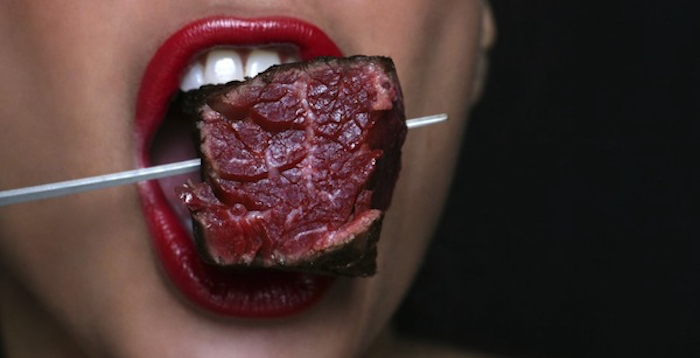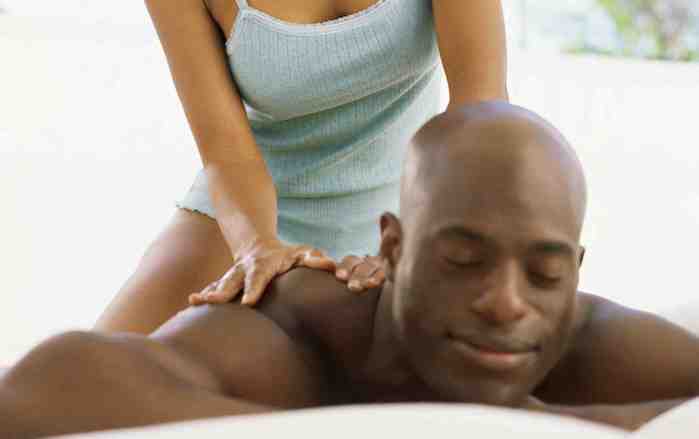What is a Balldo?
The Balldo is “The World’s First Ball-Dildo (or balls-mounted dildo, if you like)… that will allow you to penetrate your partner with your balls to have ballsex and even experience a ballgasm (aka an orgasm that is produced by ball stimulation while wearing a Balldo)…”– Paraphrased, according to the Balldo website.
The Invention of the Balldo: Prepare to be Amazed!
Recently launched as an Indiegogo campaign, the Balldo is the product of sextech developers Jerry Davies and Ellie Plasencia, who’ve created many other intriguing devices.
As its photos may not immediately explain how the Balldo’s operates, think of it kind-of, sort-of like a strap-on. But while that classic sex toy is a dildo supported by a strap-on harness, the Balldo allows the wearer to wear the dildo (or sleeve) over their balls, and the length does the same by using the wear’s testicles.
In this, it’s kissing kin to cock rings or similar ball-constructing sex toys. So, in addition to having a phallus freed from erection’s vagarities, the Balldo brings wearers that extra-level of sexual pleasure.
One of these the developers have named: a “ballgasm”–referring to the exciting sensation the wearer’s testicles receive when rubbing against their partner’s genitals.
To help the Balldo maintain the necessary tension for penetrative sex, along with its pain part, purchasers also receive a pair of “spacer rings” that can be placed behind the testicles—one or both to get the job done. The spacer rings make the testicles rigid enough for penetration.
Construction-wise, the Balldo’s a high-tech mix of flexibility and softness—as we’re talking about the testicles, after all—and firmness, which means whoever’s the user is playing with has an erection-like feeling. Made of ultra-soft platinum and body-safe silicone on the outside, with a super strong inner core to prevent collapse when trhusting.
How Put On the Baldo
As their Indiegogo says, the Balldo team recommends users begin by making their testicles as hair-free as they can, followed by the application of suitable lubrication. That accomplished, they next stretch the toy as needed to pass it around and behind the balls—and if needed, to create more tension by adding one or both of the spacers.
The public trimming, or removal, makes a lot of sense. As a cock ring fan, I know all too well how the unexpected plucking of a hair, or when they get painfully get caught in the ring, can be the polar opposite of pleasurable.
I also have to say that removing public hair can be on the tricky side—and would take another article to explore fully. Though I can state the (somewhat) obvious that before you make any attempt, for the sake of your balls, don’t get your razor out or—way, way, way worse—slather on this-or-that hair removal cream. So read up on how to do it safely and with as little pain or discomfort as possible before doing any removal.
The Balldo: A New Way to Have Penetrative Sex
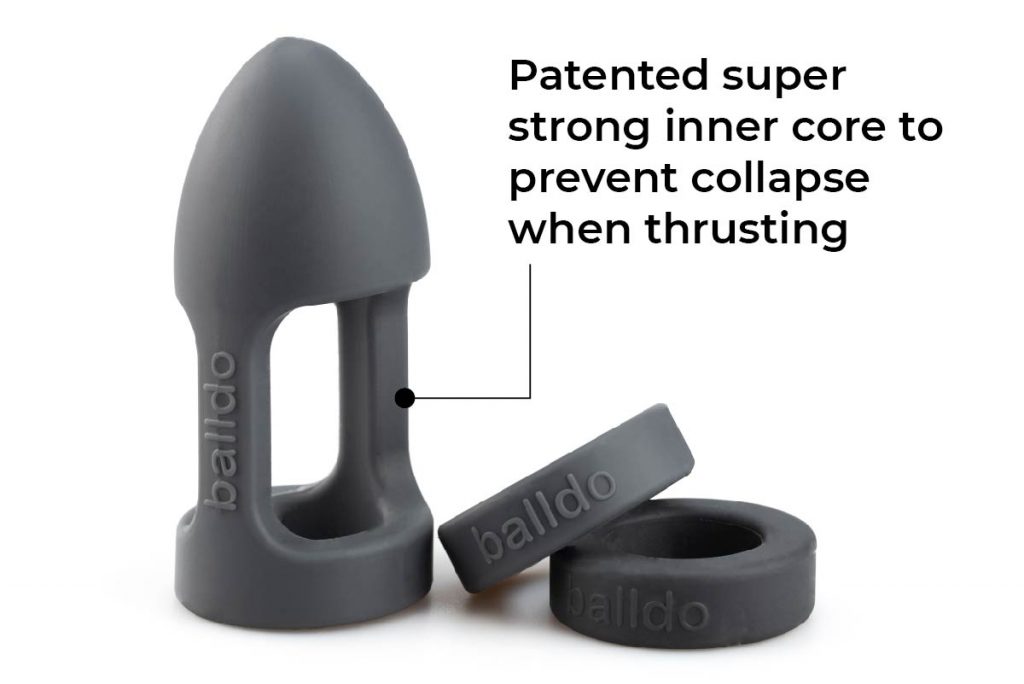 I’d also like to mention that Balldo’s team doesn’t specifically mention using their product as a way for penis-equipped persons to reduce their anxiety regarding getting and keeping an erection. Instead, they focus on how their product, as they put it, helps to “unleash pleasure that you’ve never experienced before”—as it feels uniquely different than a flesh-and-blood member.
I’d also like to mention that Balldo’s team doesn’t specifically mention using their product as a way for penis-equipped persons to reduce their anxiety regarding getting and keeping an erection. Instead, they focus on how their product, as they put it, helps to “unleash pleasure that you’ve never experienced before”—as it feels uniquely different than a flesh-and-blood member.
That it does exceptionally well according to the (giggle) testimonials provided by people who’ve taken it out for a test drive.
As a person with a penis stashed in their slacks, along with grey on the roof when I learned of the Balldo, my reaction was equal parts relief that here’s something that’ll potentially make penetrative sex less problematic and exciting to use.
How to Use the Balldo: Take it Slow With BallSex
As nothing is ever perfect, least of all sextech products, I’d need to say that since testicles aren’t exactly the most durable of body parts, users of the Balldo should take things slowly—and then, after gaining experience with how it acts and feels, trying to go all-vigorous with their penetrating.
So onto with how to use it. In that, back to the fragility of balls, you’ll probably need to modify or change your penetrative sex positions to avoid putting undue stress on them.
This in no way a slam against the Balldo’s creators, as it’s abundantly obvious they know their top-notch sextech stuff in how their product’s designed and manufactured.
Balls In Your Court: Balldo’s Unique Approach to Penetrative Sex
“Well, ya got trouble, my friend, right here, I say, trouble right here in River City, with a capital “E,” that stands for …. erection!”
Please excuse my paraphrasing of a classic show tune, but when I was first introduced to the new Balldo sextoy in a twisted way, I couldn’t not hear Professor Harold Hill’s musical warning about River City’s (fictitious) trouble.
Because here’s a product that uniquely addresses something that I consider to be a far too prevalent and far too long-lasting misconception regarding sexual pleasure sex: that it’s only and ever about erections.
The Stress of Getting and Maintaining an Erection: Let’s Liberate Sex
I’ll explain my comment above—and why I think this toy could be a life-saver for the penis-equipped.
As someone equipped with one, I can personally testify that while they can certainly be enjoyable to play with, one thing that’s not brought up often enough is how fickle erections can be.
The is especially true as their owner’s age—as when you’re a spritely young person, it’s often not so much a matter of gaining but preventing one. However, add a couple of decades, and the reverse is true: the struggle is to achieve and then subsequently maintain an erection.
What makes it more stressful is how penis-equipped people are often judged by this frequently unpredictable mechanism. Sometimes to the point where they consider themselves—to be or are treated by others—as no longer a sexual person.
Remaining on my teetering soapbox, I consider this measuring-sex-by-erection fixation, notably in Western Culture, a significant detriment towards understanding that the ability to insert part A into someone else’s part B is only a small part of what sexual pleasure is and can be. An expansive view that I wish more people would accept and explore.
Then there’s the depressing issue of how size is also unfortunately held against sexual partners. When the truth has always been, it’s not the measure of a person but what they do with what nature’s given them.
And what of the penis-equipped who get off on penetrative sex though may have issues with erections, or simply want to try out a new way to do the same, but without their own … parts?
Well, that’s where Balldo comes in.
It gives you more options than only penis penetrative sex.
Let’s Expand on What Sex is and Can Be
Going back to the hard (giggle) realities of erections, I want to round things up by rallying again against exclusively considering sexual activity with the penis-equipped to be limited to hardness.
A portion of it certainly can be, but that’s not the whole enchilada. So rather than looking at penetrative sex as the most important, with everything from oral sex to mutual masturbation and all points beyond as somehow less than, let’s work to changing our sexual perspectives, so it’s merely just a small portion of the vast sexual dessert.
And how when you do want to do it, products like the Balldo isn’t a replacement for a penis but a brand new, and perhaps hotter way to enjoy penetrative sex—and one that, for those with them, can be a great way to fuck without worrying if you won’t be able to measure up.













 Mistress Carol Credentials: Mistress Carol is a certified hypnotist and clinical hypnotherapist. She has been creating erotic hypnosis sessions for nine years. She is known for her erotic creativity and professionalism, sexy voice and her natural seductive style. In addition to creating erotic hypnosis recordings, Mistress Carol is also a practicing hypnotherapist in her community. Listen to her sexy erotic hypnosis sessions at
Mistress Carol Credentials: Mistress Carol is a certified hypnotist and clinical hypnotherapist. She has been creating erotic hypnosis sessions for nine years. She is known for her erotic creativity and professionalism, sexy voice and her natural seductive style. In addition to creating erotic hypnosis recordings, Mistress Carol is also a practicing hypnotherapist in her community. Listen to her sexy erotic hypnosis sessions at 
 Ralph Greco, Jr.
Ralph Greco, Jr.

 MODERATOR Erika Jordan, Host of Playmate Pickup Podcast
MODERATOR Erika Jordan, Host of Playmate Pickup Podcast Meet Tamara Bell who was one of the first Loveology University graduates in 2008, now she’s the Student Ambassador & Mentor, ready to help coach you to a successful career! Tamara is also a master networker and an industry leader helping grow positive businesses. She founded The Home Pleasure Party Plan Association (HPPPA) in January 2005 to establish a network between pleasure party company owners, distributors and manufacturers. Tamara said, “Our goal it is to be one voice to our distributors and manufacturers and continue to be viewed as a strong entity in this growing industry.” Now a Certified Loveologist & Love Coach working with couples, singles and business owners in developing positive relationship enhancement techniques, Tamara is loved and admired by all who work with her.
Meet Tamara Bell who was one of the first Loveology University graduates in 2008, now she’s the Student Ambassador & Mentor, ready to help coach you to a successful career! Tamara is also a master networker and an industry leader helping grow positive businesses. She founded The Home Pleasure Party Plan Association (HPPPA) in January 2005 to establish a network between pleasure party company owners, distributors and manufacturers. Tamara said, “Our goal it is to be one voice to our distributors and manufacturers and continue to be viewed as a strong entity in this growing industry.” Now a Certified Loveologist & Love Coach working with couples, singles and business owners in developing positive relationship enhancement techniques, Tamara is loved and admired by all who work with her.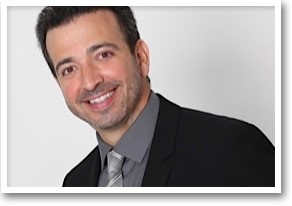 Dr. Hernando Chaves is a Licensed Marriage and Family Therapist with a clinical focus on individuals, couples, or families of unique erotic/sexual communities such as LGBTQQI, QUILTBAG, kinky, fetishistic, alternative sexual expression, unique identity and orientations, and members of non-traditional erotic communities.
Dr. Hernando Chaves is a Licensed Marriage and Family Therapist with a clinical focus on individuals, couples, or families of unique erotic/sexual communities such as LGBTQQI, QUILTBAG, kinky, fetishistic, alternative sexual expression, unique identity and orientations, and members of non-traditional erotic communities. Viloshni Moodley is a Certified Sexpert practicing as an Online Intimacy Coach. She is the founder and owner of Ultimacy Online, since leaving her over 25 years of management experience within Corporate. Her passion for empowering individuals with positive sex education and breaking the cycle of negative conditioning has influenced her change in career path. She believes relationships are the most important factor to overall wellbeing, and thus passionate about making a change to ensure people have more fulfilling relationships. Having a happy, healthy relationship provides balance in individuals and couples. Her work specializes in coaching individuals or couples who wish to achieve certain goals in the bedroom and short courses in different areas of sexuality.
Viloshni Moodley is a Certified Sexpert practicing as an Online Intimacy Coach. She is the founder and owner of Ultimacy Online, since leaving her over 25 years of management experience within Corporate. Her passion for empowering individuals with positive sex education and breaking the cycle of negative conditioning has influenced her change in career path. She believes relationships are the most important factor to overall wellbeing, and thus passionate about making a change to ensure people have more fulfilling relationships. Having a happy, healthy relationship provides balance in individuals and couples. Her work specializes in coaching individuals or couples who wish to achieve certain goals in the bedroom and short courses in different areas of sexuality.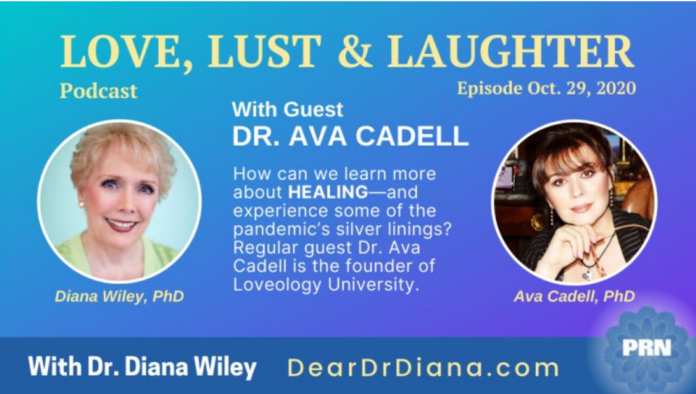 Dr. Diana Wiley is a certified Sex Therapist and licensed MFT for more than 30 years.
Dr. Diana Wiley is a certified Sex Therapist and licensed MFT for more than 30 years.



